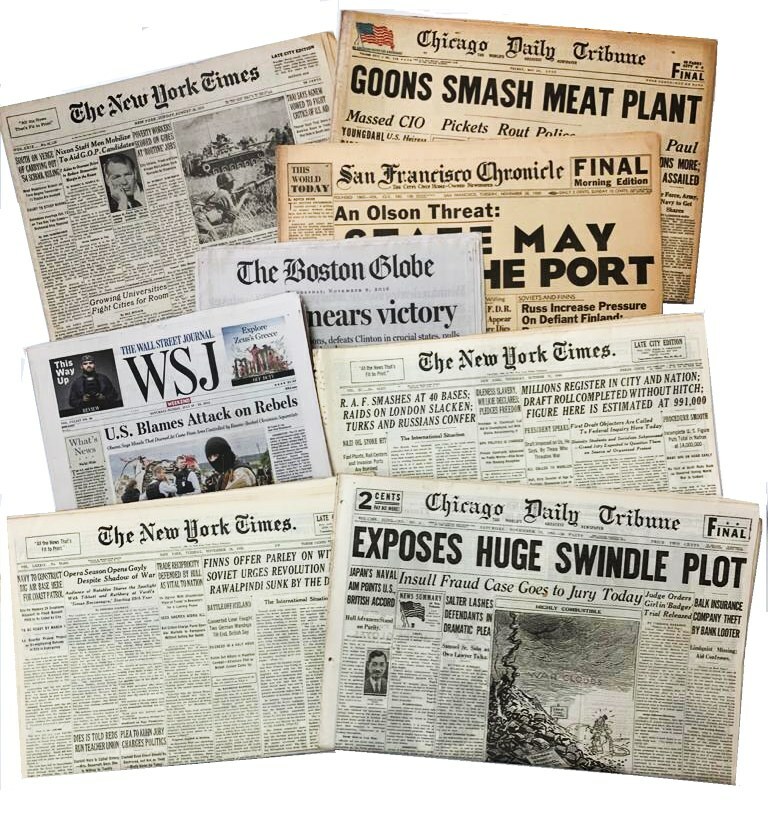In 1980, after four years of the failed Jimmy Carter presidency, some of the president’s men just couldn’t believe what had happened. A large part of the left-wing press—which was somewhat biased in those days but not nearly to the extent it is today—became highly critical of the Carter administration, an administration it had helped elect a few years before.
Clearly, it wanted Democrat Carter, once a relatively obscure governor from a small state in the South, to defeat Republican president Gerald Ford in the 1976 election. Favorable press coverage didn’t hurt. Carter narrowly won.
Cheering in the Press Box
It was obvious this was what much of the mainstream media wanted. Indeed, I remember on election night, in an NBC News brief, the anchorman announced Carter’s election. One could hear cheering in the studio. The anchor, looking at his colleagues and somewhat embarrassed, slightly smiled. Carter was president.
But then something happened that recently stopped happening: Reporters, in their fervor to get good stories no matter their private prejudices, stopped being reporters. But back in the late 1970s, most were reporters first.
Once Carter took office, the news media, mostly left wing, went after him. That’s because it turned out that he had an ineffective presidency. And it was not only his right-wing opponents who documented this.
Dissatisfied Democrats
Many in his own party started to disown Carter (For more on this, one could read Thomas “Tip” O’Neill’s memoir, “Man of the House.” Fellow Democrat O’Neill, the speaker of the House of Representatives, thought Carter and his aides were second raters. They didn’t know how to run an administration or effectively work with Congress to get legislation passed, O’Neill complained).
The press examined and covered every Carter administration scandal, possible scandal or just plain clumsy policy goof. And Carter, for all his inherent decency as a human being, had lots of problems. Carter only had one term as a governor of a mid-sized state as preparation for the big leagues of politics and was never effectively prepared to serve as president. Millions who had voted for him in 1976 would come to hold those sentiments four years later.
He was easily defeated in 1980 by Ronald Reagan. This happened as much as because of Carter perceived weakness or incompetence as revealed by the press as by anything Reagan did or promised at the hustings. One of the scandals of the Carter administration was the Billy Carter problem. That was effectively covered by the press, including left wing outlets such as the networks and the biggest papers.
That Was Then; This Is Now
Looking at how the press covered that and comparing it to today shows how the mainstream media has changed for the worst; and why it has lost so much public trust.
The press, despite being largely left wing in the late 1970s, went full bore in reporting the Billy Carter sandal. What was that?
Brother Billy had received millions of dollars as a lobbyist for the Libyan government.
This was considered a big story back then as well as it should have been given journalistic protocols, which used to be followed by almost all news organizations. Whenever a powerful public official receives foreign money, or the relative of a high public official receives geld, it used to be considered a big story in any democracy with a functioning free press.
Is the relative influencing the policy of the president or the governor or the prime minister? Is the relative passing on money to the man or woman in power?
These are logical questions in any free country with an effective news media. And it doesn’t matter much if the press is with or against the government on the op-ed pages. These are questions that must be asked no matter who is in power in any free society.
The left-wing press in those days did its job (As did the right-wing press, which ate up every Carter scandal story, then asked for seconds and wondered if it could take home doggy bags of this stuff).
Et Tu, Brute?
Indeed, by the early 1980s, former Carter administration officials were complaining about their “friends” in the left-wing press. I remember Jody Powell, a Carter aide, writing in a memoir of his experiences with the press that many of the left-wing reporters who wrote tough stories “probably voted for Carter against Reagan.”
Quite right.
Except it is now obvious that many of those reporters and their scions stopped being reporters over the last 40 years.
Questions for the Questioners
What happened? How did things change over the last few years, in the last election and even today?
And why has the mainstream media, and the press as well as government in general, lost prestige along with huge numbers of viewers, voters and readers?
Some signal changes in press coverage became apparent over the last year and these changes go on to this day. Indeed, tens of millions of Americans have stopped watching network news. They have stopped reading what were once considered prestigious newspapers, with world wide reputations for accuracy and fairness. They are suspicious of their hired help on the Potomac and at the state and local level. The U.S. government and the mainstream media has some of lowest confidence levels ever as measured by public opinion polls.
What happened with the press?
More on that in our next installment.
![]()
